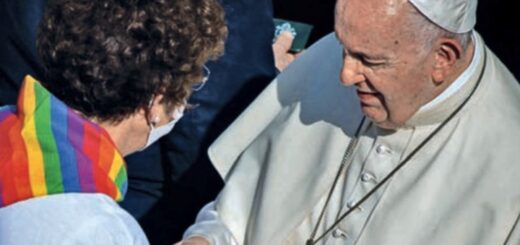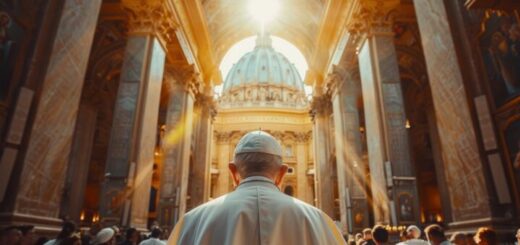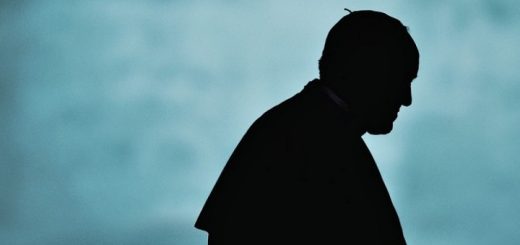“Making Room” my life among homeless LGBT+ young people
Article by Maxwell Kuzma* published on the website of National Catholic Report (USA) on June 15, 2024, freely translated by Luigi and Valeria de La Tenda di Gionata
The book “Making Room” by Carl Siciliano takes us by the hand and takes us away from the residential neighborhoods where our comfortable middle-class homes are located, away from our secure jobs and support networks, to a place where there are no neither pantries nor nice full refrigerators. It takes us to a filthy underpass or a thin park bench, where a young LGBTQ person – a minor – huddles alone, without any support, dealing with the reality of indifference (at best) and cruelty ( in the worst) of the world.
And these young adolescents do not pass through the darkness of this experience unscathed. Many have been addicted to cocaine and can sometimes get a bed for the night only by selling their bodies.
In New York, in the 80s and 90s, many of these kids attended the SafeSpace, where we often met Carl, a muscular Italian gay boy, who had developed profound experience in the hospitality service for the homeless by working for a certain time with the association Catholic Workers by Dorothy Day (journalist and social activist, famous for her social justice campaigns in defense of the poor and homeless, Ed.).
Carl deeply believed that being gay was a spiritual talent not to be hidden under a bushel – and he put this queer theological insight into practice, focusing his professional efforts on helping the most vulnerable LGBTQ population: young people.
It is truly heartbreaking to learn, through Carl's experience, the first-hand accounts of what happened when these young people came out to their families. LGBTQ readers like me will feel the impact of these stories deeply, with the resonances and memories these stories evoke. Even without physical violence, psychological, emotional, and spiritual violence can inflict a lot of damage – even worse if it comes from those who should love you more than anyone else.
But the fault is not just families. Making Room the comparison between Times Square Before and after a renovation that had been presented as a redevelopment - an initiative that affected in a disproportionate way (and has, in fact, evicted) the LGBTQ community.
The fact that we Americans have allowed this to happen, historically and today (see the story of Nex Benedict - a 16 -year -old non -binary person found dead at his house, in Oklahoma, perhaps from suicide induced by repeated episodes of bullying at school - Ndt), is truly scandalous, yet we often choose not to look in the face of the infamy that we ourselves allow. We turn to the other side, as the families who abandon these kids do.
Carl Siciliano is an inspirer, but this book is not a fairy tale in which the sparkling knight with sparkling armor arrives on his white horse to defeat the monster who threatens the village. As Carl discovered in his experience, the hero of this story is the community, and we become heroes when we take a position, we tend to hand or we have the courage to take the floor in support of someone who cannot do it.
The existence of queer people (and other marginalized people) will always be a upheaval of the status quo, even when we celebrate them.
During the period spent at SafeSpace, Carl spent a lot of energy searching – seemingly endlessly – for funds to finance his business, and even had to fight to receive the funds officially allocated by the city administration for assistance to young homeless queers – but never actually sent to the associations that actually deal with them.
There are also beautiful passages in the book: the talent shows in which young LGBTQ people express the full spectrum of their vibrant personalities on a homemade catwalk, decked out in their favorite wig and eyebrows made up with razor-thin lines; resilience that shouldn't have been necessary; the will to survive that should never have been threatened by so many dangers.
There are family-style meals organized at the shelter for the Christmas holidays, where the children tell Carl that it is "the first Christmas I've enjoyed", even if these moments of warmth and sense of security are interrupted by the slap of the icy air when you have to get back on the road at the end of the meal.
Although he is not a fairytale knight, Carl must face many monsters just to conserve the scarce resources he has been given: the city administration that does not want to give him funding, a new priest who wants to redevelop the building, potential donors who reveal themselves to be speculators and many of his own inner demons, and he often finds himself wondering how he can bear the immensity of these hopeless stories – especially knowing that at the end of the day he has a home and a bed to return to, but the kids don't.
Sometimes the worst happens. A boy dies. And every time it almost makes Carl collapse. He moves forward with the firm will to prevent as many deaths as possible, comforted by the fact of being part of the communion of saints, knowing that this requires everyone to do their part with dignity and courage, without fearing the flames they will have to go through.
In summary, this is the message I took most strongly from the book. The contribution of the entire community of saints is needed, both those who are among us and those who have left this earth. This is not a finite problem with a finite solution, but our God is not a finite God.
When it comes to supporting with prayer, to support fragile and marginalized communities and to support them financially, we join forces with the energy of the Holy Spirit to have the strength and courage to act outside our comfort zone and to do what it is our duty to do, for the good of all souls.
*Maxwell Kuzma is a Catholic transgender man who advocates for the inclusion of LGBTQ people in the Church and writes about the unique gifts that queer people can offer to the Church and the beauty of diversity in God's creation. Max was quoted by New York Times and by 'Associated Press in response to news from the Vatican regarding transgender people.
Original text: Carl Siciliano tells his story of 'Making Room' for homeless LGBTQ youth






